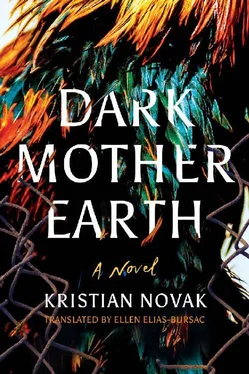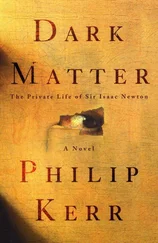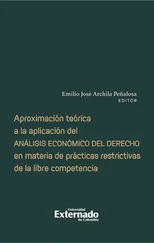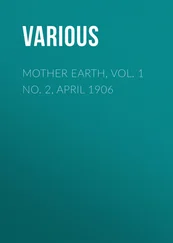“Might be the cathode needs replacing,” the head of the household would say.
“The cathode? Oh, really. Cat-toad?” Imbra would look up, shooting a conspiratorial glance at the man’s wife. “And where is this cathode? Show me, why don’t you.”
The head of the household would fall silent and long to be anywhere else. Imbra would then say in a conciliatory tone: “Oh, it ain’t the cathode. We’ll get to the bottom of this, don’t you worry.”
He was infinitely sure of himself, so much so that it bordered on arrogance. “You must be joking,” he seemed to say. “How could you possibly be so dense?” The whole village rang with his inner song. At soccer games it wasn’t so much that he was loud, but that he’d time his gibe, no matter how stale, for that moment that everything got quiet, so he’d receive bursts of laughter for it.
“What’s up, ref? Having a bad day, are we?”
“Goalie! In from Switzerland? You’re as full of holes as Swiss cheese.”
He had a turn of phrase for anyone who happened not to be around just then, and with the phrases he maneuvered through a world ruled by asymmetry, turning it all to his benefit. For those who were a bit taller than him, he’d add Long to their name, Dry to those skinnier than him, and Porky for the ones who were fatter. He was a man of perfect proportions, and nobody seemed willing to dispute this.
Once, a few months before the suicides, he came to our house to fix the TV set. He brought me and my sister chocolate bars, a Braco one for me and a Seka one for her, and I didn’t like the way he talked to my mom. He spoke to me as if I were slow and chided me for not knowing what a voltage tester and a Phillips screwdriver were. He said I’d never be a real man if I didn’t learn how to fix things. I told him I was very good at breaking them, and he shot back that I should hold my tongue if I didn’t have something more clever to say. By then I had better self-control, and I didn’t hate him or wish him dead. But when Bacawk and Chickichee told me he’d hanged himself down by the river, I was no longer quite so confident. How much hatred did it take?
Bacawk and Chickichee said a huge fissure opened up inside Imbra when he began doubting his own worth some time back. And this oddly coincided with news that there was a young electrician named Čanadi living in a nearby village. Čanadi was cheaper, and we heard he was polite and didn’t bullshit everybody the way Imbra did. Imbra’s heart broke when he heard a few people in our village had called Čanadi and he did the job twice as fast while charging less than Imbra would have. And, as if fate had a sense of humor, now Imbra, the person responsible for cooking up all those nicknames, was christened with one himself. Folks began to refer to him as Imbra the Collector, because somebody said that they’d be setting aside the whole of their salary for Imbra to collect, even if there was nothing for him to repair, and that made everybody laugh.
Do you remember when we talked about how people sometimes catch their reflection in a store window and then adjust their expression, so they think they look just like the picture on their ID? They have no idea how much of their disappointment, disgust, and scorn they reveal on their face. They aren’t aware of little gestures, sighs, and tics that say everything they don’t in words. Our own collusion with the pretenses of others allows us to live in a more or less orderly world. But Imbra? Imbra now found himself trapped between a rock and hard place and saw no way out. He couldn’t ignore them, all those people he no longer mattered to, yet he felt as if he could read their thoughts. Now he found out what being mocked and despised felt like.
Bacawk and Chickichee were sure that he’d still be alive if this had been all he was struggling with. But then the suicides began. He feared he’d lose control when it hit him, and in a panic he began praying to be spared, hiding it all the while from his wife, with whom he hadn’t had a serious conversation in at least two decades. As is often the case with grown-ups who become religious when it suits them, so it was that Imbra the Collector began going to church. This was the only socially acceptable way of submerging his terror, at least briefly. He didn’t want to look pitiful like Miška, so he ridiculed Miška along with the others. Meanwhile he prayed in earnest and did his level best, but the fissure simply couldn’t be healed with prayer. He couldn’t hide; he was certain that this horrendous thing would grow inside him, too, and there’d be no saving him. He wanted the bodies of those who’d killed themselves to be exhumed and buried outside the graveyard, because otherwise the whole village would be doomed. He heard there were women with children who’d left the village to stay with relatives for a while. And he wanted to go, too. He found consolation in the thought that there really was somebody who was going around talking people into doing it, and he imagined how he’d beat the living daylights out of the monster, punch them bloody, knock out their teeth, and carry them out into the middle of the village for all to see, and then finally turn them over to the police. He never, of course, breathed a word of any of this to anybody. Sometimes, in the evening hours, he felt as if darkness were coursing into him like a swarm of ants, through every orifice and pore, and he thought he’d go mad at the sound of their antennae in his belly. He paced around the house, saying he had a few more things to see to; he moved tiles that had been piled on the roof since before Tito died, hammered a board onto the sagging old door of the chicken coop. One evening he had nothing left to repair so he called to his wife that he was going out for a stroll.
“When his old lady asked why he wanted to go traipsing around and what would folks be thinking when they saw him poking around the village in the dark, he told her he was going to take a look at some property he was considering buying, so she quieted down and muttered something about how a person can take as good a look in the light of day.”
He filled an empty Radenska mineral water bottle with water from the well and, sipping from it, he went out onto the street. Bacawk and Chickichee told me he hadn’t planned where he was going, at first he thought he’d just go to the chapel and back, but since he didn’t run into anyone, he decided to continue on to the parish hall. The whole way there, to his surprise, he was completely alone. This didn’t bother him. He thought the village wouldn’t be such a bad place if only it were completely empty one day a week. He didn’t mind the village, not at all—it was the people he couldn’t stand. He went by the soccer field and finally stopped at the Mura. He had nowhere to sit, so he climbed, naked except for his belt, up onto the first branch of a poplar. For a time as he sat there, he was happy, maybe for the first time in his life, because everything that had pressed him earthward, all of that, was down there below. He felt a chill and climbed onto another branch, scraping the soles of both feet against the bark as he went. He reckoned this was the last thing that would ever hurt him. He sat on a branch, took a deep breath, and closed his eyes for a moment. Then he fastened the belt around the branch he was sitting on and made a loop. He had to be careful not to fall as he leaned over to get his head through it. He looked once more across the river to the other bank, where the moon shone over the hamlet of Hotiza. He spread his arms wide and thrust himself free of his seat on the branch.
That’s what Bacawk and Chickichee told me, and, though I wondered at the time if they were lying, there couldn’t be any doubt when, several weeks later, Imbra Perčić the Collector was found. I heard about it from Mom long after we left the village behind. The only thing Bacawk and Chickichee got wrong was that he wasn’t on the second branch of the tree, but was hanging at least thirty feet off the ground at the very top of the only poplar tree growing by the Mura. He was found after Slovenian territorial forces and the Yugoslav People’s Army fought. The men from the village were combing the riverbanks for mines and biological weapons the army might have left behind. Pišta was the one who spotted Imbra’s body hanging up there in the treetop, and said: “Well I’ll be damned, a parachutist.” It didn’t strike them right away that there was no parachute. The body had already changed color, it looked like a half-rotten pear, and was, they said, buck naked. In the underbrush they found his clothes and the empty bottle of Radenska. Nobody could figure out how he’d climbed up there, he was no longer a young man. But so many strange things had been happening in our village that spring that nobody dared offer explanations by then.
Читать дальше












